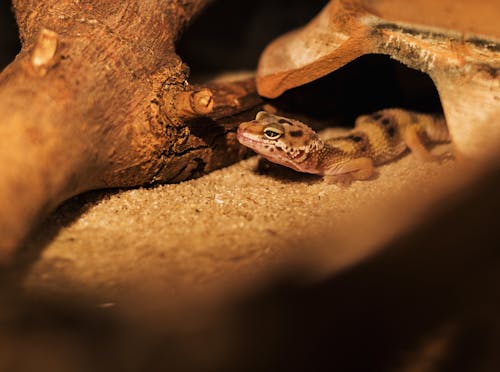
Determining the gender of your gecko is crucial for breeding purposes, as well as understanding their specific needs and behaviors. Without sufficient knowledge on how to accurately differentiate between males and females, you may inadvertently mismanage their care. In this article, you will discover the telltale signs and physical characteristics that can help you confidently identify whether your gecko is male or female, ensuring their health and well-being.
Physical characteristics
Geckos are small reptiles known for their unique physical characteristics. They have a compact body shape, with a distinct head and a tail that is typically longer than their body. The skin of a gecko is covered in scales, which can vary in texture and coloration based on the species and individual. These scales provide them with protection and help regulate their body temperature.
Behavior
Geckos exhibit various behaviors that can provide clues about their gender. Males are often more territorial and aggressive compared to females. They may display dominance by bobbing their heads or performing territorial displays. On the other hand, females are usually more docile and less prone to territorial behavior. Observing the behavior of your gecko can help in determining its gender.
Vocalizations
Geckos are not known for vocalizations like birds or mammals. However, they can produce sounds through clicking or chirping. These vocalizations are often associated with courtship and territorial behaviors. While vocalizations alone may not conclusively determine the gender of a gecko, it can provide additional information when combined with other physical and behavioral characteristics.
Reproductive organs
Determining the gender of a gecko can be done by examining their reproductive organs. In males, the presence of hemipenal bulges is an indication of their gender. These bulges can be seen as small, symmetrical swellings located on the underside of the base of the tail. Females, on the other hand, do not have hemipenal bulges but may have a small genital slit near the vent.

Size and weight
There can be differences in the size and weight between male and female geckos, although this can vary among species. In general, males tend to be slightly larger and heavier than females. However, these differences are often subtle and may not be easily discernible without a side-by-side comparison of individuals from the same species.
Tail characteristics
The tail of a gecko can also provide clues about its gender. In some species, males may have a heavier base of the tail compared to females. Additionally, when viewed from above, the base of the tail in males may appear wider than in females. However, it is important to note that not all geckos exhibit these tail characteristics, and they may vary depending on the species.

Pore or femoral gland secretions
Geckos have specialized glands called femoral pores located on the underside of their thighs. These pores secrete a waxy substance that can be used to differentiate between males and females. In males, these glands are usually more developed and prominent compared to females. By gently examining the area below the thighs, you may be able to observe the presence of these femoral pores, which can indicate the gender of your gecko.
Pattern and coloration
The pattern and coloration of a gecko’s skin can sometimes provide hints about its gender. While not always reliable, some species may exhibit sexual dimorphism, where the males and females have different color patterns or shades. Males may have brighter or more vibrant colors, while females tend to have more subdued or earthy tones. However, it is important to note that this characteristic can vary greatly among different species of geckos.

Probing or popping method
In some cases, a more invasive method known as probing or popping can be used to determine the gender of geckos. This technique involves gently inserting a small probe into the vent of the gecko to assess the presence or absence of internal reproductive organs. However, this method should only be performed by professionals or experienced individuals, as it carries the risk of injury to the gecko if not done correctly.
Professional examination
If you are unsure about the gender of your gecko or prefer a more accurate assessment, it is recommended to seek the expertise of a professional. Veterinarians or reptile breeders with experience in geckos can perform a thorough examination to determine the gender of your gecko. They have the knowledge and skills to assess various physical characteristics, reproductive organs, and behavior to provide an accurate identification.
In conclusion, determining the gender of a gecko can be challenging but can often be achieved through a combination of physical characteristics, behavior observations, and professional examination. By paying attention to reproductive organs, size and weight, tail characteristics, pore or femoral gland secretions, pattern and coloration, and behavior, you can gain valuable insights into the gender of your gecko. In cases where a definitive identification is required, it is always best to consult with a professional to ensure accuracy and the well-being of your gecko.
